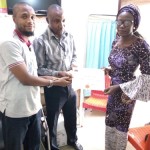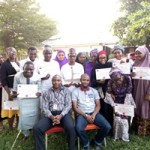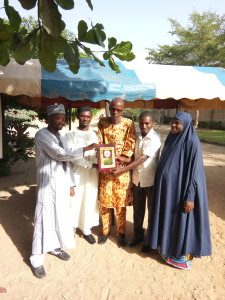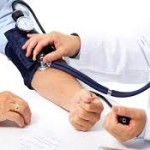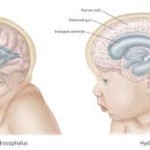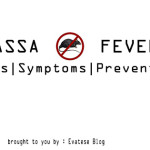Hydrocephalus: Water accumulation in brain cavities
Hydrocephalus refers to accumulation of fluid in the cavities, known as ventricles, within the brain. This excess fluid makes the ventricles big and increases the pressure on the brain.
Normally the Cerebrospinal fluid bathes the brain and spinal column. But if the pressure of the fluid is high it can damage the brain tissues. This condition is more common among infants and older adults.
Causes
Cerebrospinal fluid is produced by tissues lining the ventricles and flows into spaces around the brain and spinal column. It’s normally absorbed by the blood vessels in tissues near the base of the brain.
Hydrocephalus can occur because of the following reasons:
· Obstruction – This is the most common problem.
· Poor absorption – This is less common and occurs due to inflammation of brain tissues
from disease or injury.
· Overproduction – This is little rare.
Symptoms
This varies according to the age of onset.
In Infants: Unusually large head, quick increase in head size, a bulging soft spot on the top of the head. Physical symptoms include Vomiting, poor feeding, irritability, sleepiness, fits, downward fixing of eyes, decreased muscle tone and strength.
In older children: Headache, Blurred or double vision, abnormal enlargement of head, sleepiness, vomiting, poor balance and coordination, seizures. Behavioral and cognitive changes include, Irritability, Personality changes, attention deficit, deterioration in previously acquired skills, like walking / talking.
In middle-aged adults: Headache, Difficulty in remaining awake or waking up, Loss of balance, Loss of bladder control, Vision impairment, Decreased memory and concentration.
In older adults: Loss of bladder control, frequent urge for urination, memory loss, loss of thinking and reasoning skills, walking difficulties, poor coordination or balance, slow movements.
Diagnosis
Neuro examination: The basis of the examination is to judge Muscle reflexes, strength and tone, Sense of touch, eye movement, Hearing, Mental status, Mood and Coordination of movements.
Imaging Studies: Brain imaging tests show enlargement of the ventricles and also identifies the underlying cause of hydrocephalus. These include Ultrasound scan, CT and MRI scans.
Treatment
The following surgical treatments are commonly used to treat hydrocephalus.
· Shunt
· Endoscopic third ventriculostomy
However, before you take any treatment step, please consult your doctor. Please do not start any treatment without consulting your doctor.
Did You Know!
A number of developmental or medical problems can trigger hydrocephalus.
· Developmental abnormality of the central nervous system.
· Bleeding inside the ventricles.
· Uterine infection of the mother like rubella or syphilis.
· Certain other factors can also contribute to hydrocephalus, like below :
o Tumours involving brain and spinal cord.
o Infections involving brain like bacterial meningitis.
o Bleeding inside brain.
o Traumatic injuries to the brain.
